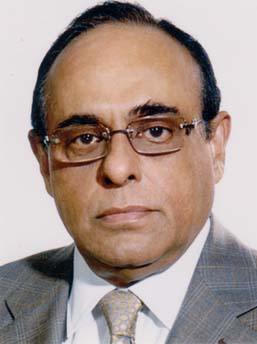
The New York Times on Friday published a news item to claim that the non-Muslim extremists killed nearly twice as many since 9/11. This may not be the right comparison. But what should be appreciated is that violence is inevitably a reaction of the sense of powerlessness to wrongs committed by the powerful ones. It is true that prejudice also often plays a role. But resorting to violence and to be ready to die are generally an expression of helpless anger against the persecuted wrongs — real or perceived. In the US country report on Bangladesh, the undemocratic ways of Bangladesh politics including extra-judicial killings, loss of faith in popular elections, oppression on the oppositions etc. have been aptly highlighted. Surely, we do not have to know from any foreign country about the conditions of our democracy. The talks of terrorism in certain quarters are meant to justify grounds of diminishing the need of democracy and denying free elections. It is not correct, as mentioned in the report, that correspondents of only two newspapers are not invited to the Prime Minister’s functions. But issuing such reports must have effects and purpose to be meaningful.In Bangladesh, not only democracy is in crisis. The government itself, being detached from the people, is faced with unaccountability and mismanagement everywhere.Most disconcerting should be the dwindling discipline in the police and their involvement in crimes. Business of killer drugs has become high level operations. Godfathers remain unknown and unpunished. It is found that cocaine has also started entering into Bangladesh for markets outside. Banks are so frequently robbed that public confidence in the safety of their money in our banks has been shaken. Such a situation is certainly chaotic and all the more worrying because it speaks of absence of central leadership who is able to offer hope and discipline.What is disappointing is that such country reports should be seen as an encouragement for good governance in a failing democracy like Bangladesh. But in Bangladesh, the ruling elite does not take it in that spirit. Those who are willing to forsake democracy altogether they are not ready to care what the outsiders say.Unfortunately, America’s policy of favouring the ideals of democracy, human rights and self-determination seems no more its prime goal. Its influence as a force of democracy and human rights is waning to the disappointment of the aspiring democrats all over the world. Compromising with democracy cannot be the way to fight extremism. To treat fighting terrorism as a destructive war will lead to many wars but will not end terrorism. The long experience should tell that.America must learn that its support for anti-communism dictators did not help to contain communism in the cold war era. Communism collapsed for its own contradictions and rigidity. The current US policy of embracing dictators for stopping terrorism is also failing in the same way.The USA has to be a positive force of democracy in eliminating terrorism. Terrorism is not all madness, in some cases it has deep ideological motivation too.Terrorism of any kind has to be discouraged with the help of peoples’ power under democracies. Mere publishing country reports on defects of democracy does not make a country democratic. So far as terrorism is concerned it is rooted widely in the media that groups are getting organized for acts of terrorism in Bangladesh which was known internationally as a moderate Muslim country.

